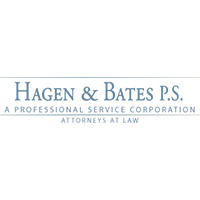Amanda Park White Collar Crime Lawyer, Washington
Sponsored Law Firm
-
 x
x

Click For More Info:
-
The Law Offices of Richard L. Cooper, P.A.
848 Brickell Avenue Suite 800 Miami, FL 33131» view mapDWI/DUI, Drug Trafficking, Felony Nationally Ranked Top 40 Under 40
With Richard L. Cooper you can expect a trusted confidant who will work diligently to fully understand your case and determine a road map to help you regain control of your life.
800-756-2781
Not enough matches for Amanda Park White Collar Crime lawyer.
Below are all Amanda Park Criminal lawyers.
Wayne D. Hagen
✓ VERIFIEDCriminal, Personal Injury, DUI-DWI, Business
Since the firm was established in 1993, the skilled attorneys at Hagen & Bates P.S. have provided versatile, professional and effective solutions to a... (more)
Amanda Kleespie
Juvenile Law, Federal, Criminal, Indians & Native Populations
Status: In Good Standing Licensed: 19 Years
Harold S. Menefee
State Government, Criminal, Securities Regulation, Administrative Law
Status: In Good Standing Licensed: 45 Years
Jack Bradford Micheau
Family Law, State Government, Indians & Native Populations, Criminal
Status: In Good Standing Licensed: 41 Years
Orlando James Tadique
Accident & Injury, Personal Injury, Criminal, Divorce & Family Law
Status: In Good Standing Licensed: 18 Years
David Leonard Mistachkin
Landlord-Tenant, Family Law, Criminal, Personal Injury
Status: In Good Standing Licensed: 21 Years

 Richard L. Cooper Miami, FL
Richard L. Cooper Miami, FL AboutMiami Attorney at Law
AboutMiami Attorney at Law ServicesCriminal Defense
ServicesCriminal Defense

